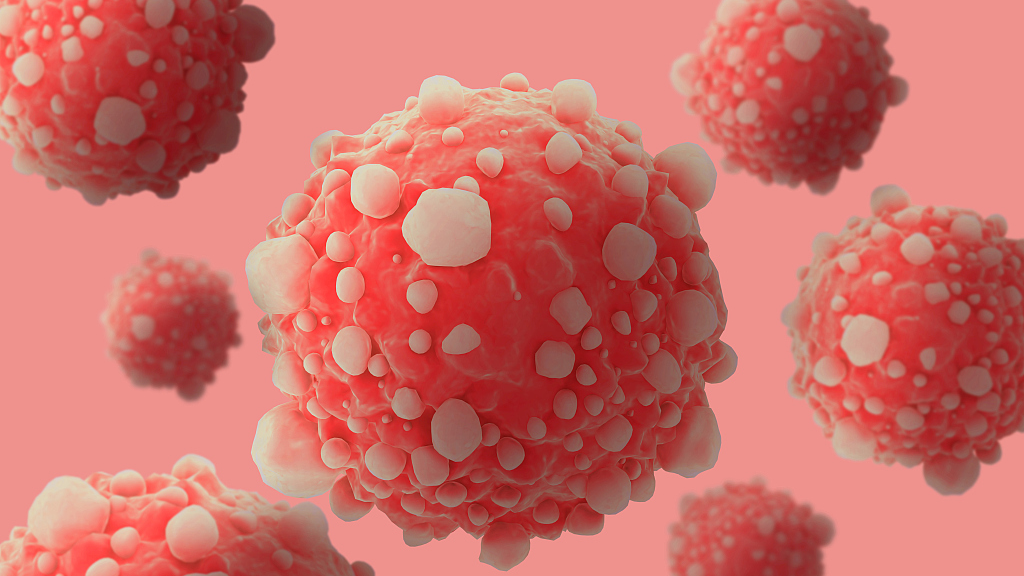
Micrograph of pancreatic cancer cells. /CFP
Micrograph of pancreatic cancer cells. /CFP
Chinese scientists have found a solution to inhibit the occurrence of cytokine release syndrome (CRS) triggered by cancer immunotherapy, according to a recent paper published in the journal Nature Biomedical Engineering.
The CRS, also known as cytokine storm, is an overreaction of the immune system. It happens as an adverse effect of certain types of immunotherapy, such as CAR T-cell therapy, which can efficiently treat malignant tumors while stimulating immune cells to release plenty of inflammatory cytokines, thus leading to CRS.
Patients with CRS show symptoms such as fever, hypotension, organ failure and even death in severe cases. A current treatment option is to inject antibodies of interleukin-6 (IL-6), a proinflammatory cytokine. However, they cannot be injected before the CRS occurrence, otherwise, the normal levels of IL-6 in the body will be affected.
Scientists from the National Center for Nanoscience and Technology developed a temperature-sensitive hydrogel conjugated with IL-6 antibodies. It can be injected in advance and largely reduces the levels of IL-6 when CRS induced by CAR T-cells happens.
The implanted hydrogel works like a "sponge" by adsorbing IL-6 only when its levels rise above normal, thus preventing the CRS occurrence, according to the paper.
It added that the "sponge" does not affect the immunotherapy's anti-tumor efficacy and can be easily removed with a syringe.
Source(s): Xinhua News Agency